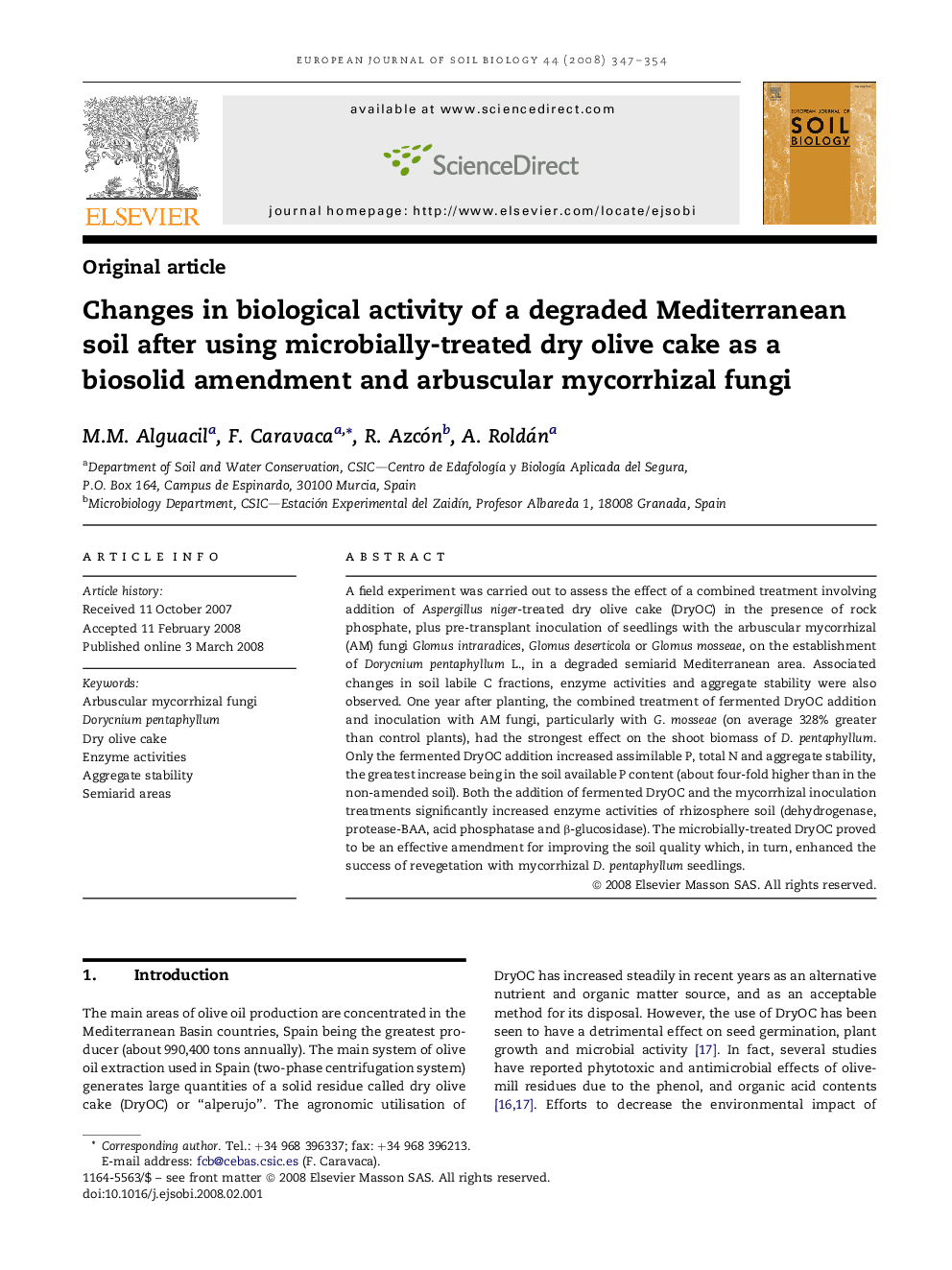| Article ID | Journal | Published Year | Pages | File Type |
|---|---|---|---|---|
| 4392324 | European Journal of Soil Biology | 2008 | 8 Pages |
A field experiment was carried out to assess the effect of a combined treatment involving addition of Aspergillus niger-treated dry olive cake (DryOC) in the presence of rock phosphate, plus pre-transplant inoculation of seedlings with the arbuscular mycorrhizal (AM) fungi Glomus intraradices, Glomus deserticola or Glomus mosseae, on the establishment of Dorycnium pentaphyllum L., in a degraded semiarid Mediterranean area. Associated changes in soil labile C fractions, enzyme activities and aggregate stability were also observed. One year after planting, the combined treatment of fermented DryOC addition and inoculation with AM fungi, particularly with G. mosseae (on average 328% greater than control plants), had the strongest effect on the shoot biomass of D. pentaphyllum. Only the fermented DryOC addition increased assimilable P, total N and aggregate stability, the greatest increase being in the soil available P content (about four-fold higher than in the non-amended soil). Both the addition of fermented DryOC and the mycorrhizal inoculation treatments significantly increased enzyme activities of rhizosphere soil (dehydrogenase, protease-BAA, acid phosphatase and β-glucosidase). The microbially-treated DryOC proved to be an effective amendment for improving the soil quality which, in turn, enhanced the success of revegetation with mycorrhizal D. pentaphyllum seedlings.
